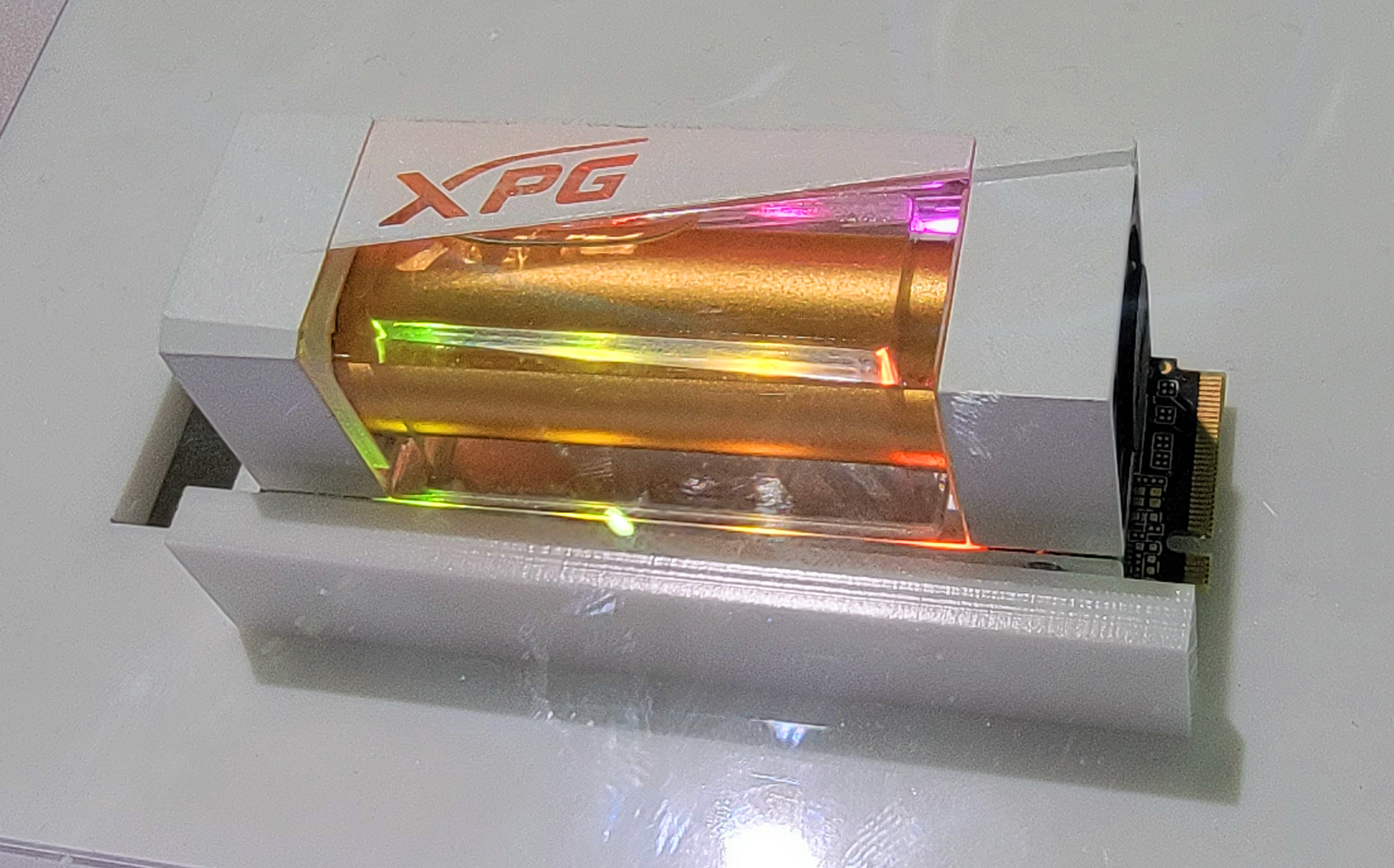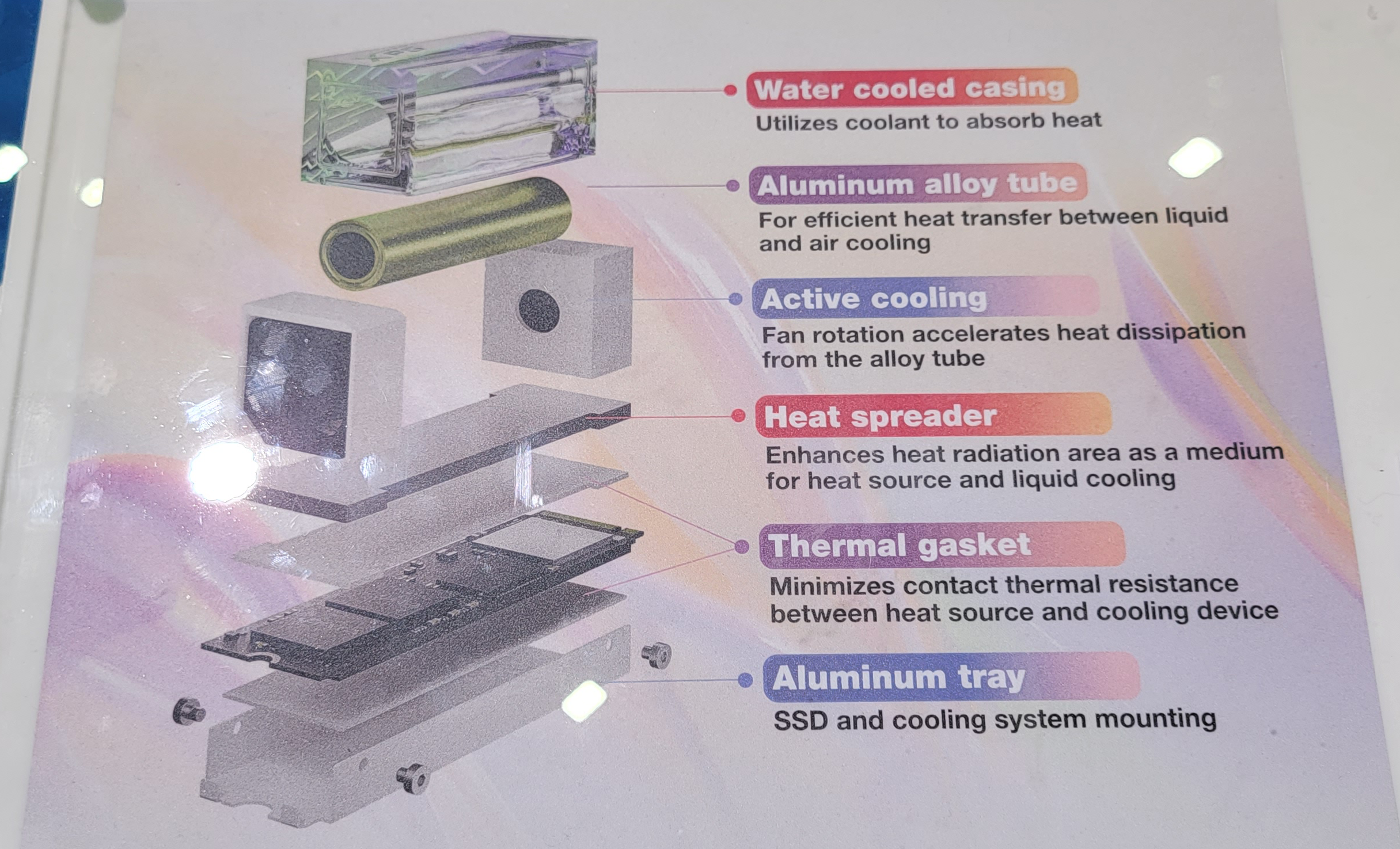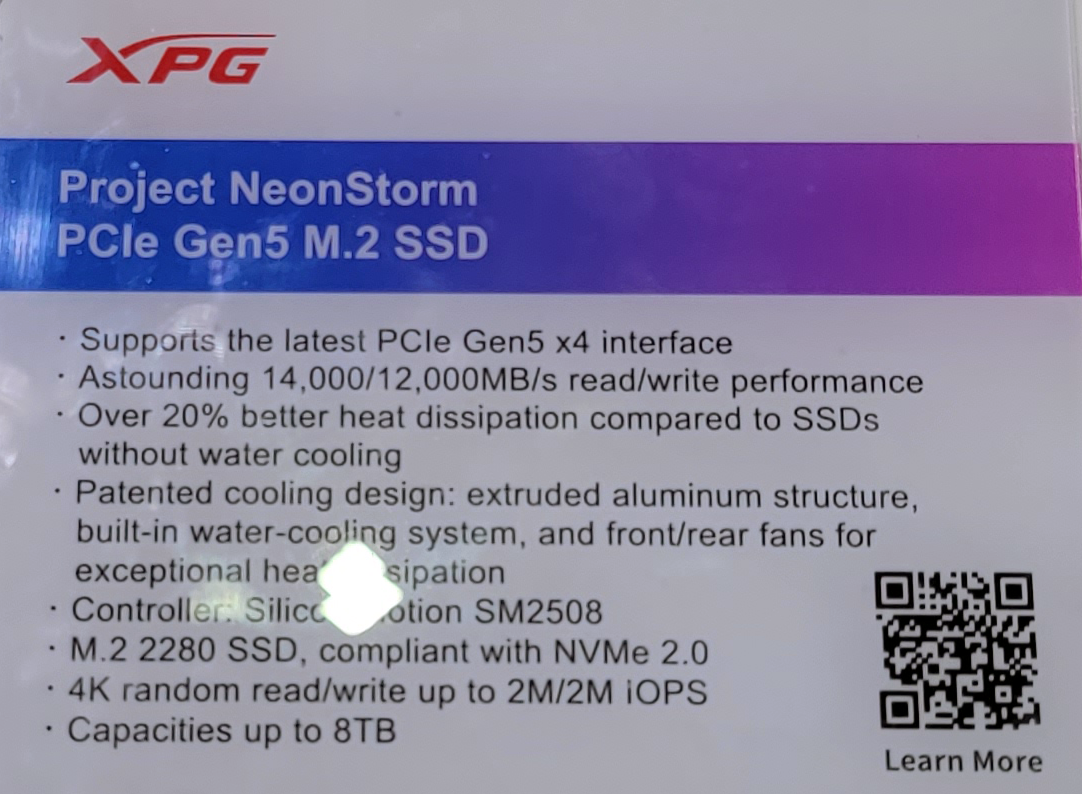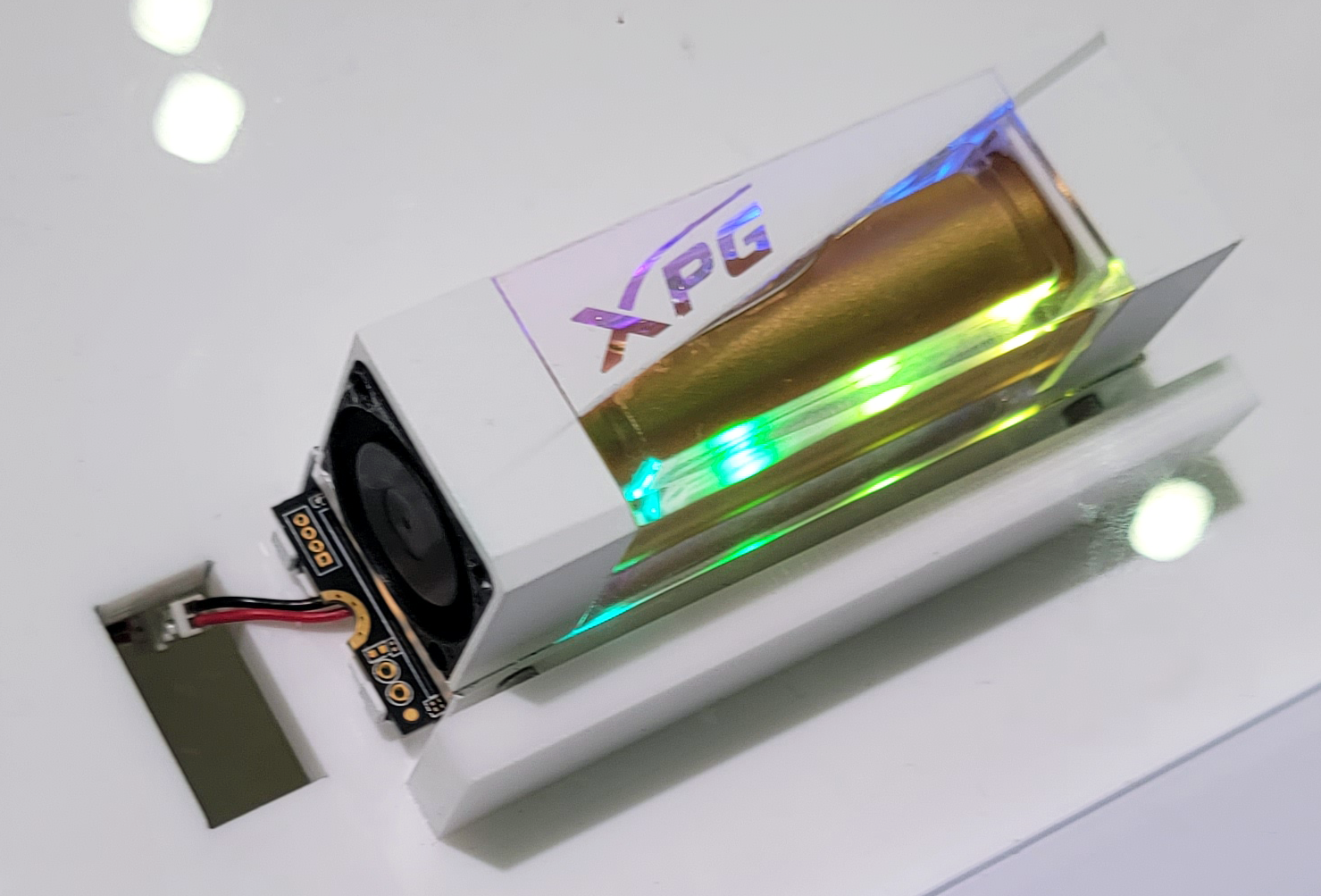
Adata revealed some additional details about its NeonStorm solid-state drive with a self-contained liquid cooling system that promises up to 14GB/s sequential read speeds and up to 2M random read/write speeds at Computex 2023 trade show in Taipei. The PCIe 5.0 x4 drive appears to use an all-new platform from Silicon Motion and deliver rather unprecedented levels of performance.
Adata's proprietary self-contained liquid cooling system is arguably the most important selling point of the upcoming NeonStorm drives, so it makes sense to start with it. While the cooling system uses a high-performance coolant, it is not an LCS as we know them.

When a NeonStorm generates heat, it is absorbed by a thermal gasket and a metal heat spreader to maximize contact area. This heat is then transferred into a liquid reservoir where it is absorbed by a high-performance coolant, which in turn is cooled down by an aluminum alloy tube that is encircled by the coolant. Meanwhile the tube is cooled down using two fans that blow air from one side to another. The liquid-assisted cooling setup outperforms traditional fan-cooling mechanisms, delivering an impressive 20% additional reduction in SSD temperatures, according to Adata. That extra cooling will be instrumental to ensure consistently high performance of NeonStorm drives.
Adata's NeonStorm SSDs are set to use Silicon Motion's SM2508 controller that is compliant with the NVMe 2.0 specification and promises sequential read speed of up to 14GB/s and sequential write speeds of up to 12GB/s as well as random read/write performance of whopping 2 million IOPS, which is comparable to that of enterprise-grade SSDs. As far as capacities are concerned, SM2508-based drives will support up to 8TB of 3D NAND, which is plenty for client-grade drives.

The key advantage of Adata's NeonStorm coolers is that the reservoir is contained and there is no circulation of liquid from one system to another, so there are no potential failure points. Assuming that the build quality of NeonStorm is fine and its fans do not fail, it will probably be able to work for years without issues. Furthermore, the cooling system does not seem to be too expensive to make and it also looks impressive.

Of course, fans produce noise and for now Adata even has to feed them using an external cable. Meanwhile, the company hopes that Silicon Motion manages to reduce power consumption of its platform so that to supply fans from the slot, the company said.
Adata's NeonStorm is still months away, so there is time for the SSD maker to think about how to make its fans a bit quieter and for SMI to find out how to reduce power consumption of its controller.







